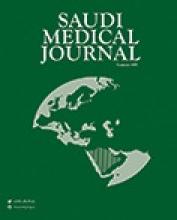Abstract
OBJECTIVE: Addiction to opium and heroin is not only an important social and individual problem in the world but it also affects the human physiology and multiple systems. The aim of this study is to determine the effects of chronic heroin consumption on basal and vagus electrical-stimulated total gastric acid and pepsin secretion in rats.
METHODS: The study was carried out in the Department of Physiology, Kerman University of Medical Sciences, Iran from August 2002 to June 2003. Both male and female rats weighing 200-250g were used. Rats received daily doses of heroin intraperitoneally starting from 0.2 mg/kg to 0.1mg/kg/day up to the maintenance level of 0.7mg/kg and continued until day 12. After anesthesia, tracheotomy and laparotomy, gastric effluents were collected by washout technique with a 15 minutes interval. The total titrable acid was measured by manual titrator, and the total pepsin content was measured by Anson's method. Vagal electrical stimulation was used to stimulate the secretion of acid and pepsin.
RESULTS: Heroin results in a significant decrease in total basal acid and pepsin secretions (4.10 +/- 0.18mmol/15 minutes versus 2.40 +/- 0.16mmol/15 minutes for acid, p<0.01, and 3.63 +/- 0.18 mg/15 minutes versus 3.11+/- 0.18 mg/15 minutes for pepsin, p<0.05). But, it does not produce any significant changes in acid and pepsin secretions in vagotomized condition. Heroin also causes a significant decrease in vagal-electrically stimulated acid and pepsin secretions (14.70 +/- 0.54 mmol/15 minutes versus 4.30 +/- 0.21mmol/15 minutes for acid, p<0.01, and 3.92 +/-0.16 mg/15 minutes versus 3.37+/- 0.16 mg/15 minutes for pepsin, p less than 0.05).
CONCLUSION: Heroin consumption decreases the total gastric basal and vagus stimulation of acid and pepsin secretion, but not in vagotomized condition. Heroin may decrease acid secretion by inhibiting vagal release of acetylcholine within the gastric wall. Other probable mechanisms include: presynaptic inhibition of acetylcholine release or depressing the vagal center, inhibition of pentagastrin induced acid secretion, inhibitory effects via central mechanisms, probably mediated by the opiate receptors. Further studies are needed to recognize the actual mechanism.
- Copyright: © Saudi Medical Journal
This is an open-access article distributed under the terms of the Creative Commons Attribution-Noncommercial-Share Alike 3.0 Unported, which permits unrestricted use, distribution, and reproduction in any medium, provided the original work is properly cited.






